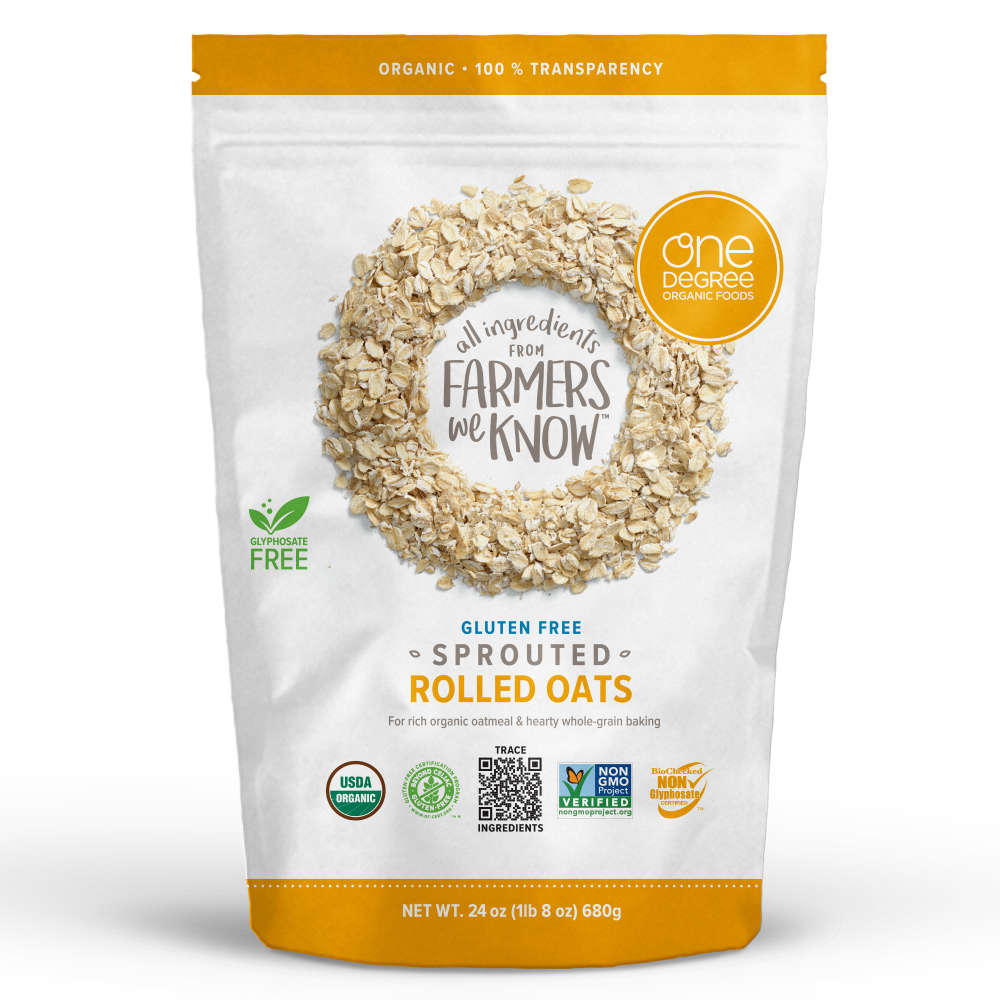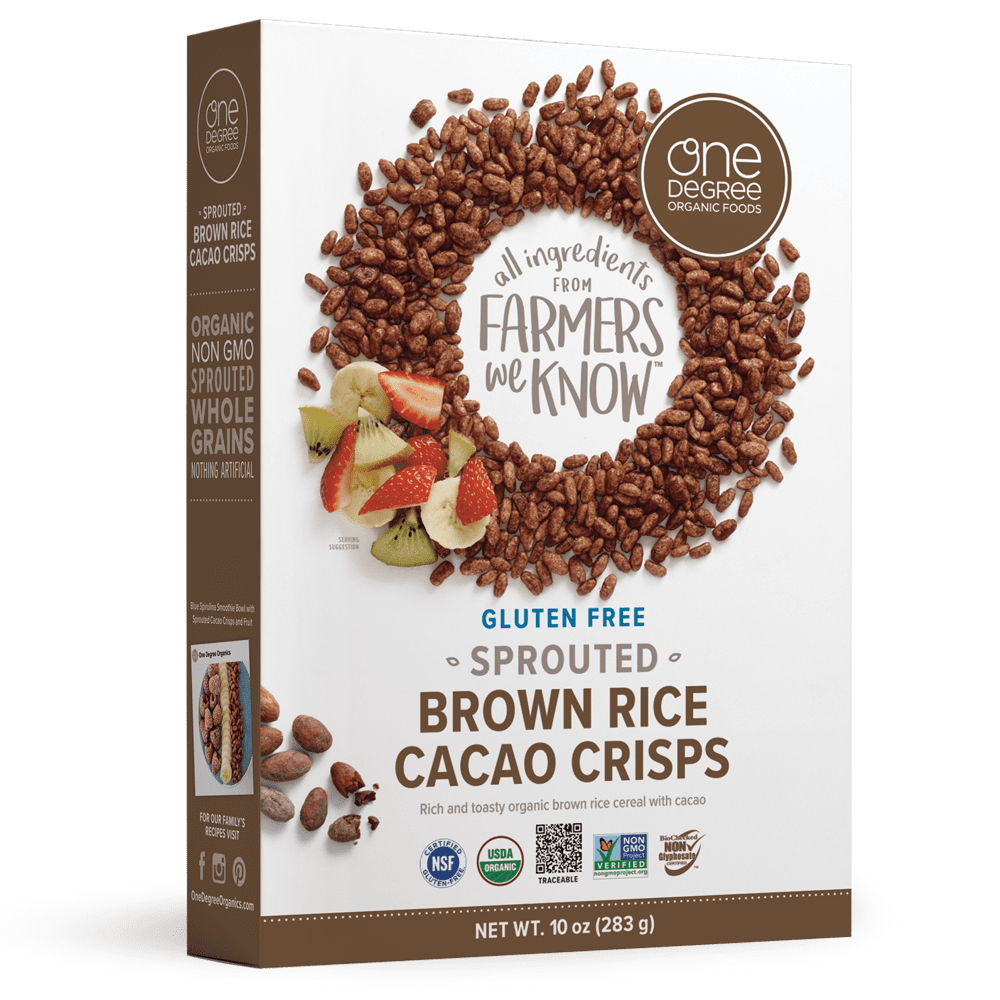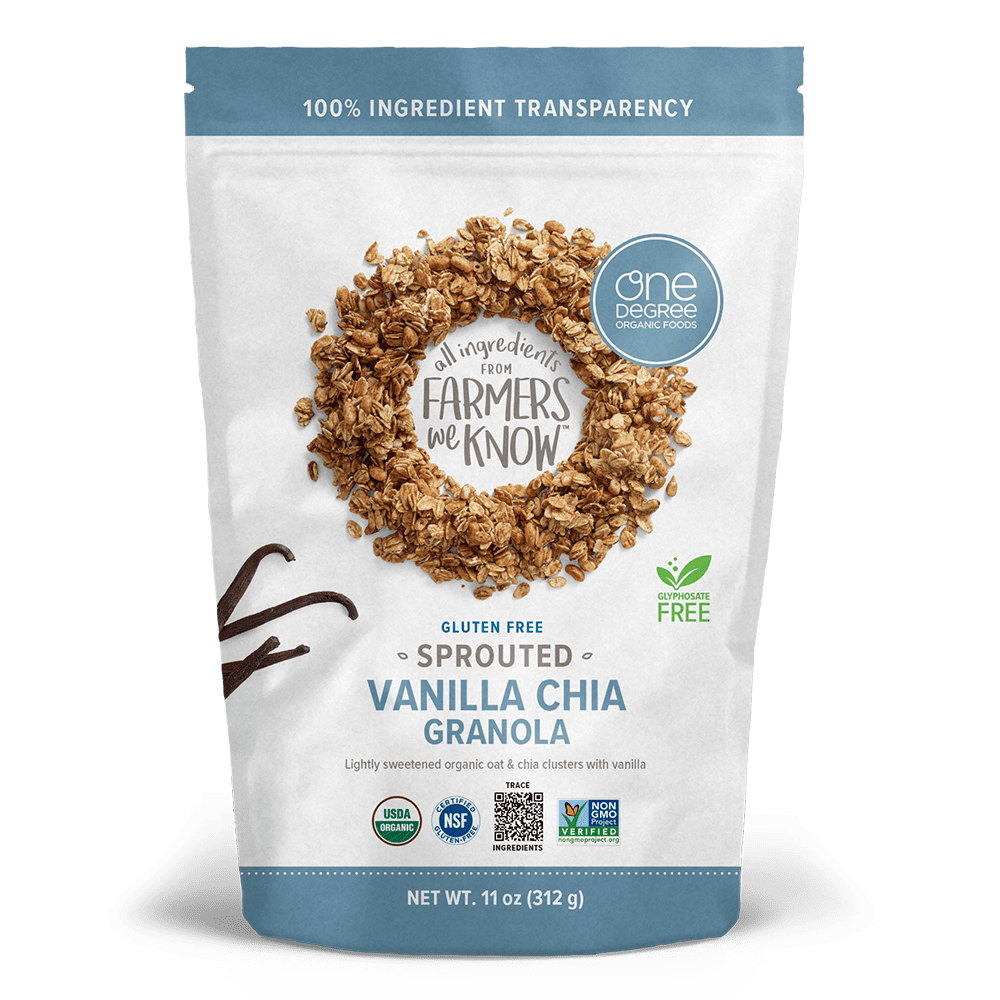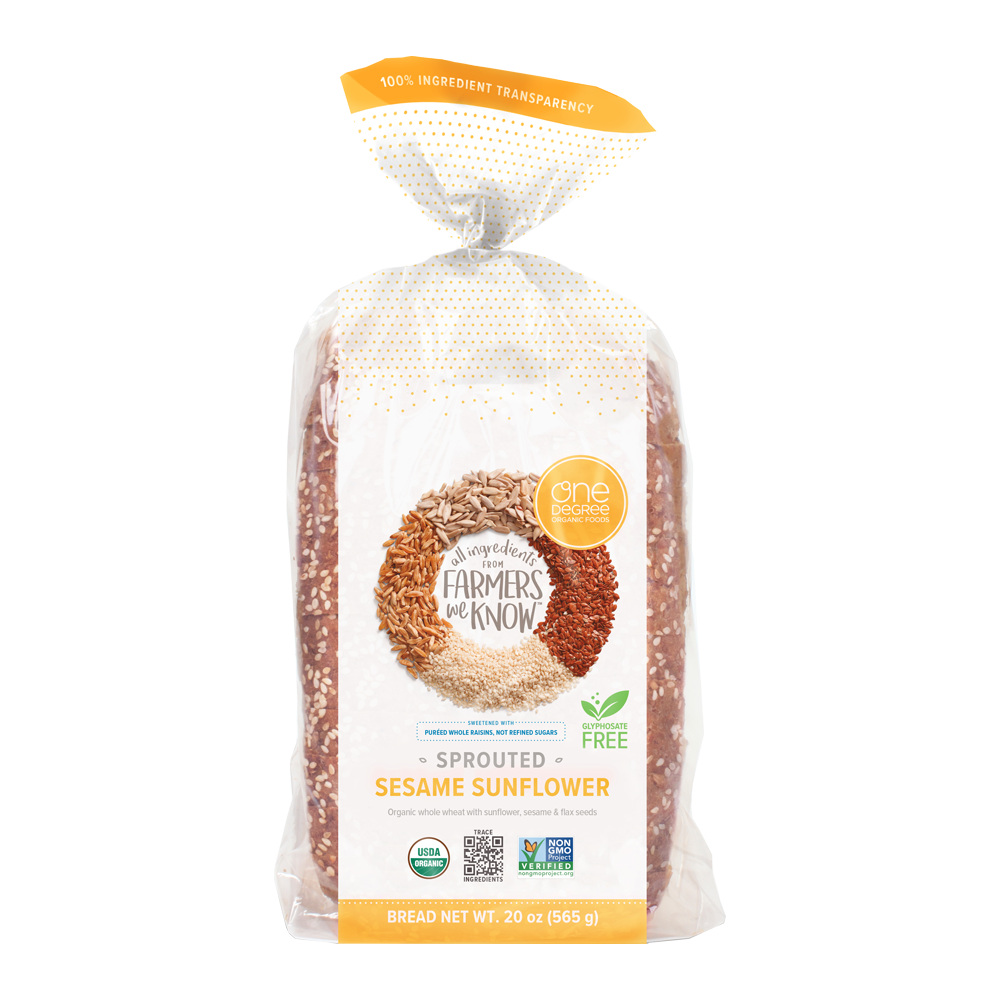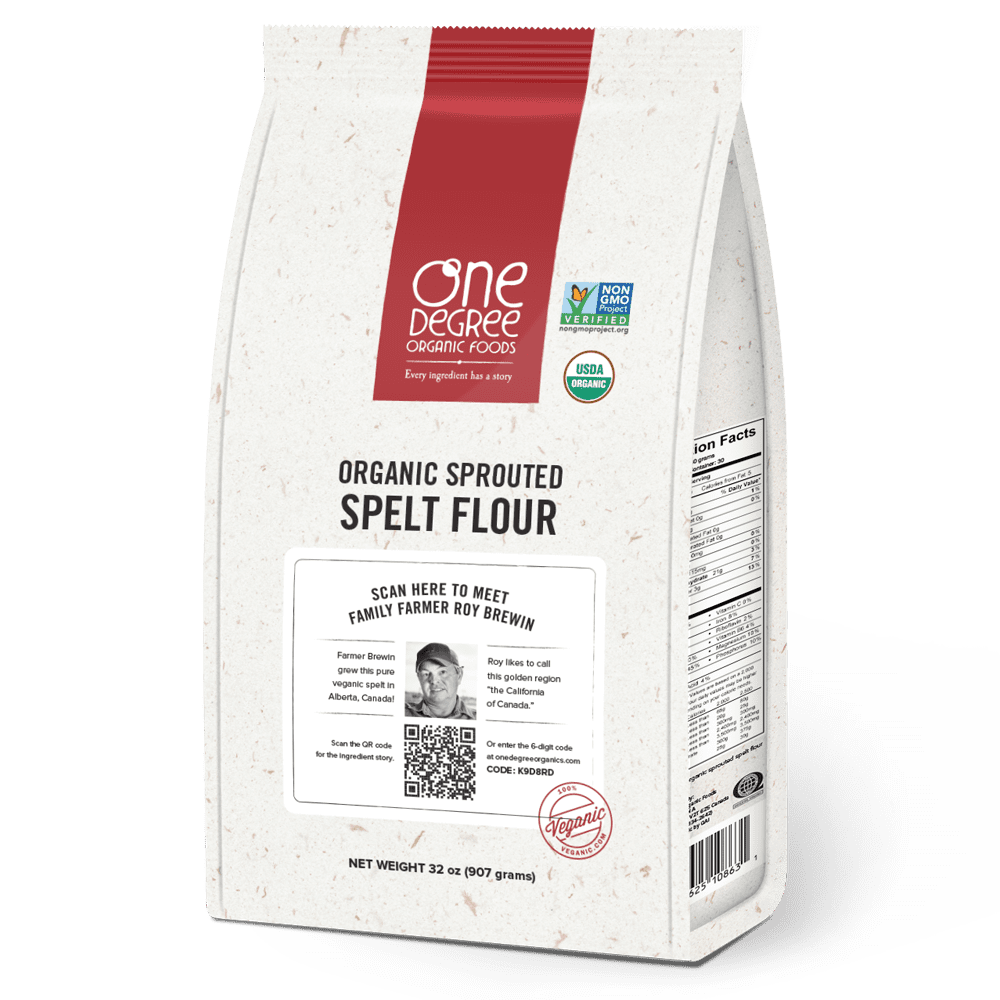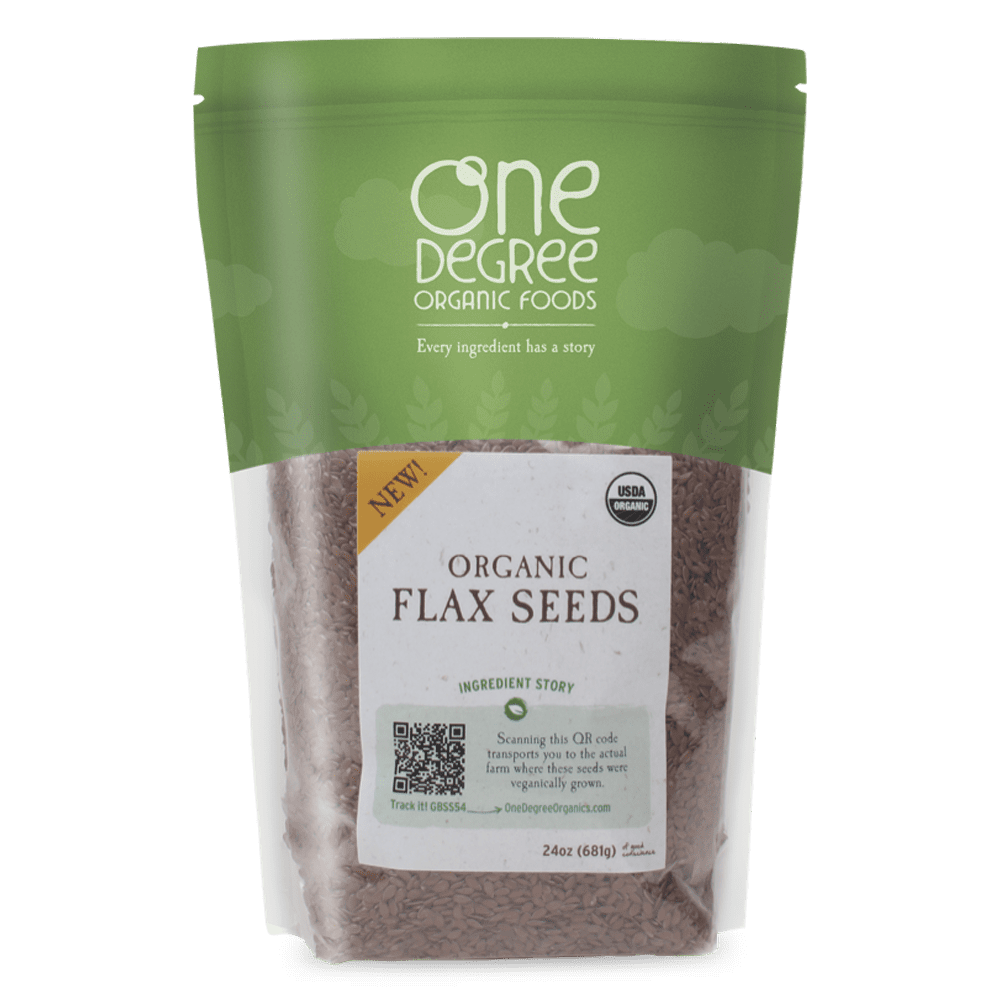Brown Rice
Alma Mia Family Farm
Not long ago, amid a panorama of oats, barley, hard red spring wheat and durum, one of our favorite veganic farmers pointed to a prized relic that sat rusting and immobile on the Canadian plains: a 1947 tractor, one of dozens of vintage machines he curates on his land.
Fast forward to harvest season in Chajarí, Argentina, where farmer and pro race car driver Diego Menéndez grows world-class brown rice for One Degree. As he drove us through his vast property in an ultimate driving machine, a sleek BMW SUV, we quickly realized: We’re not in Saskatchewan anymore.
Diego races Fiats, Ferraris, BMWs and more in Argentine and European contests. Through nearly two decades on the track, he’s reigned as champion of the regional Formula Entrerriana rally and seized the second place cup at the Formula Super Renault Argentina. This past spring he was in Italy, piloting a top-of-the-line Ferrari 458 GT3 in the Blancpain Endurance Series, chasing his dream of competing in Le Mans.
Racing quickens his pulse, but it’s farming that’s in his blood. Diego’s grandfather was one of the first rice farmers here in Entre Ríos, a subtropical province bordering Uruguay. The family’s extensive lands were a laboratory for learning about nature, and also the place where he first discovered motion, camber and a tractor’s parody of velocity.
“By the time I was 10 years old, I was already fascinated by the equipment my father used to harvest the rice,” Diego told us. “I actually started driving the farm machinery at that age. Because I grew up in such close and intimate contact with nature, I will always be fond of being out in the fields.”
Once Diego assumed responsibility for the farm, he introduced a bold new innovation, just as any inventive mechanic would. It was a fresh concept called organic farming. Diego took it one step further by using veganic methods, cultivating crops without the use of any animal-based fertilizer.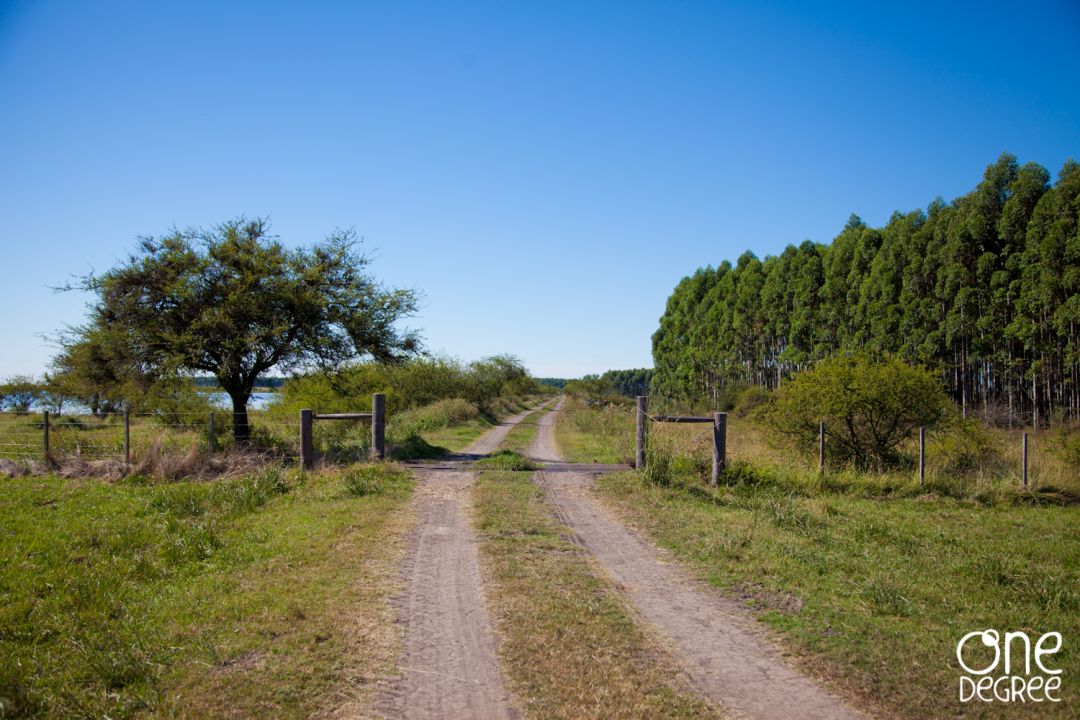
“My respect for nature and devotion to the land are reasons why we use crop rotation to build nutrients in the soil, instead of fertilizer,” he says. “We use no chemical or synthetic fertilizers, no animal-based fertilizer — no fertilizer of any kind.
“We use three different plant varieties in our crop rotations. First, of course, is rice. And then we also fortify the soil with sorghum and flax. We have two different lots, and alternate crops between them. In one lot, we’ll grow sorghum or flax, while cultivating rice in the other lot. During the fourth and fifth years of a rotation, we let the land rest for two years, then start the process over again when the soil has recovered its natural fertility.”
Adding an extra dimension of purity to his rice, Diego irrigates the crop using rainwater. “When growing rice, it’s important to have an irrigation lake, a river close to the field, or even a water reservoir around the fields,” he says. “That’s because rice consumes a lot of water, to the point where we need a thousand liters of water to grow one kilo of rice.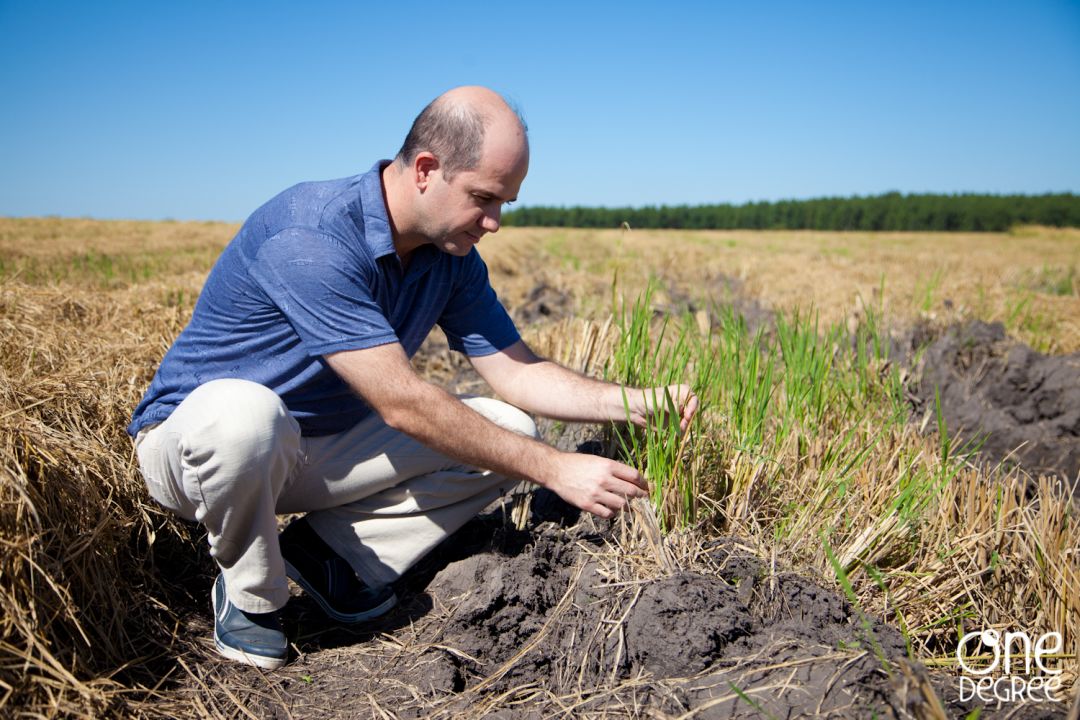
“Our source is rainwater that we store in our irrigation lake. By using pure water from precipitation, we avoid the risk of introducing residue into the fields, which can be carried by rivers or other kinds of irrigation systems.”
With basic elements — pure water, nutrients from plants, and the dark rich soil that graces his farmland — Diego is able to grow a truly special variety of rice, a prize more rewarding than profit. “We saw that it’s possible to grow organically; more importantly it’s what we can teach and show to the community, how important eating organically and taking care of the community is. I am very satisfied that our field is growing crops without pesticides or synthetic fertilizers. I know we’re producing something good and healthy for the community. To me, the number one goal of my life as a farmer is to bring good food to the people, healthy rice grown safely.
“In Argentina, we say rice is the bread of the world. Two-thirds of the world’s people eat rice, usually every day, so rice is definitely very important. And that is also why growing veganic rice is such an opportunity. Consumers everywhere can discover the advantages of these safe and natural farming methods, while enjoying rice that is good for them and good for the planet.”
Even before we learned of Diego’s thrilling achievements on the track, or noticed one of the farm’s wild ostriches accelerating into a ruffled blur across our field of vision, we knew we had discovered a unique and unforgettable place. Idealism, ambition — and winning — are the core philosophies here, making it the perfect source of brown rice for our own joyously milled breakfast of champions.
“If we do everything with our heart and do the best we can, we can make a difference,” Diego reminded us. In that moment, he may have been thinking of Le Mans; but sweetened with such optimism, rice at daybreak has never tasted better.
— Charlie Dodge
